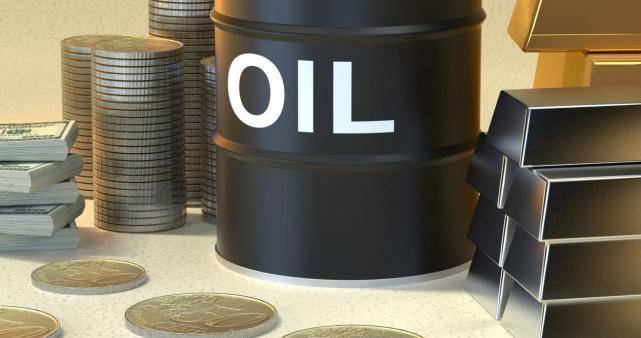Fitch warns that the fossil fuel industry may face a wave of rating downgrades in the low-carbon era
According to a Fitch analysis, oil and gas companies are the most vulnerable issuers when it comes to dealing with climate risks such as increasingly stringent emissions regulations.。If the industry's producers adapt too slowly to low carbon, most of the fossil fuel industry may face an era of credit rating downgrades.。
Fitch, one of the world's three largest rating agencies, has warned that most of the fossil fuel industry may face an era of credit rating downgrades if producers in the fossil fuel industry adapt too slowly to low carbon。
According to a Fitch analysis, oil and gas companies are the most vulnerable issuers when it comes to dealing with climate risks such as increasingly stringent emissions regulations.。
Fitch's models show that globally, more than a fifth of companies across all industries are at significant risk of a downgrade due to "elevated" climate vulnerability over the next decade.。The analysis shows that half of the issuers at risk of a downgrade are from the oil and gas industry, while coal and utilities are also particularly vulnerable to a downgrade.。
More importantly, according to the Fitch report, more than half of global issuers that could face a downgrade due to climate risk are currently investment grade.。The sample of the report covers 715 companies rated by Fitch。
The International Energy Agency estimates that global oil demand will peak this decade.。But other researchers have warned that the trend could accelerate.。InevitablePolicyResponse, a forecasting group cited in the Fitch analysis, said that peak oil could come in 2025 and that demand for oil would fall by more than 60 per cent over the next 25 years.。
Sophie Coutaux, head of ratings ESG at Fitch, said in an interview that the size of the future decline in demand is a very large number。Coutaux said it now has a "big question mark" over whether issuers will be able to adapt to the change.。
Fossil fuel industry issuers face transition risks
At this stage, many companies in the fossil fuel industry are redoubling their efforts to develop their core businesses as regional conflicts trigger an energy crisis and drive up fossil fuel prices。Rising oil prices are also making oil companies, especially oil leaders, increasingly cash-rich, and they are using their ample cash flow to buy back shares to reward shareholders and are beginning to take various acquisitions to expand their industry。
But these "good days" can't last forever.。Huge profits from rising prices of traditional energy sources such as oil are showing signs of abating。
This week, BP's third-quarter results fell short of analyst expectations due to weak gas earnings, sending its shares down。The company's third-quarter revenue fell 28% year-over-year to 485.$400 million, 0 earnings per share.$89, below analyst estimates of $1.16美元。The company said it remains committed to using 60% of its surplus cash flow for share buybacks by 2023, while maintaining its investment-grade credit rating。
Despite the unsatisfactory results, BP executives came out to "sing more" to the company to appease people。MurrayAuchincloss, the company's interim chief executive, said on Tuesday that he expects the company's earnings to continue to grow during the decade.。He also told investors that the company's growth now needs to come more from clean energy than from oil and gas.。
Some of the world's largest oil and gas companies hope they can achieve future emission reduction plans by using carbon capture technologies that are not yet fully developed.。
However, Fitch warned that time may be running out for some businesses in the industry to develop viable emission reduction plans.。Coutaux said some investment-grade issuers are already investing in low carbon, but the pace needs to pick up.。

The impact of climate risk on credit ratings is already apparent.
For investors, the credit rating granted to issuers by rating agencies is an important consideration in their purchase of fixed income products issued by issuers.。But credit rating agencies have so far struggled to figure out how to better incorporate climate risk into their models, leaving fixed-income investors largely on their own to judge the climate risk faced by issuers.。
According to the Institute for Energy Economics and Financial Analysis (IEEFA), there has been debate within the big rating companies.。Hazel Ilango, an energy finance analyst with a focus on debt markets at IEEFA, said in a recent interview: "The alarm bells have been ringing for months.。"
While investors remain unhappy that rating companies are slow to study related risks, there are signs that climate risks are already affecting rating agencies' credit scores。
Researchers at the European Central Bank found that since the signing of the Paris Agreement, companies that are at greater risk of climate transition have experienced a greater decline in ratings than their counterparts that have adapted faster.。And European companies have a bigger rating impact than the U.S. because of tougher climate regulations pushed by Brussels.。
Separately, a report released by the Bank of Canada in July showed that investors were paying more premiums when buying credit protection for companies at high risk of credit transitions.。Premiums range from 12 to 20 basis points。And the longer the term, the higher the additional cost。
Bank of Canada researchers said: "Companies that are better prepared to transition to a low-carbon economy have a lower cost of capital and are less affected by transition policies.。"
Other rating companies are also increasingly incorporating climate risk into their models。S & P Ratings says regulatory and policy risks are most relevant to a company's credit profile。S & P says actual impact of extreme weather triggers rating downgrade。
·Original
Disclaimer: The views in this article are from the original Creator and do not represent the views or position of Hawk Insight. The content of the article is for reference, communication and learning only, and does not constitute investment advice. If it involves copyright issues, please contact us for deletion.